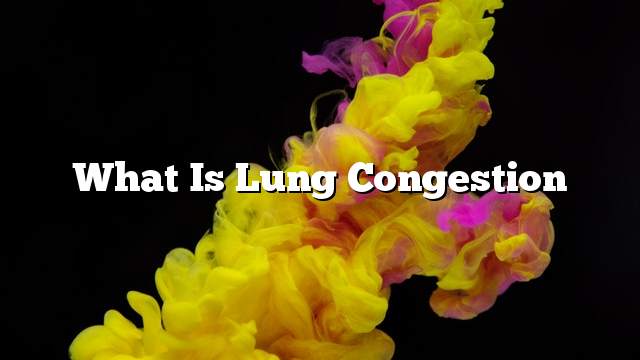What is lung congestion?
Lung congestion is an inflammation of the alveoli in one or both lungs, which in turn causes the accumulation of fluids and pus in the lungs and may be dangerous or moderate risk.
Causes of lung congestion
There are many causes of congestion of the lung, including:
1. Lung congestion may be caused by breathing bacteria, virus or fungus acquired from the surrounding community.
2. Or may be acquired by hospital due to bacteria and may be hospitalized after 48 hours.
3. It may be through a foreign body enters through eating and drinking, which is dealt with some of which causes respiratory pneumonia.
There are serious risk factors for lung congestion :
1. Older persons over 65 years of age.
2. Children less than two years.
3. In people with low immunity.
4. People who smoke.
5. People with asthma and heart disease.
Symptoms of lung congestion
1. Cough and frequent sputum.
2. Chest pain in conjunction with coughing and deep breathing
3. Infection with fever and frequent sweating.
4. Chills.
5. Shortness of breath.
6. General stress.
7. Continuous headache.
8. Frequent vomiting and nausea.
9. When the elderly and the immune system has a low temperature.
Diagnosis of the disease
It is done by the doctor by knowing the history of the patient’s health, clinical examination, x-rays, blood tests, lung oxygen, phlegm, and endoscopy.
Treatment of lung congestion
The treatment of lung congestion depends on the elimination of bacteria and bacteria that are the cause of the disease and reduce complications as much as possible and may need to stay in the hospital, and is given a treatment called the name Sifaclor.
In order to prevent the disease, seasonal flu vaccine, trying to quit smoking, exercise and a healthy diet consisting of dairy products, fruits and vegetables to improve immunity, not going out of the house when a cold is infected, take vaccines against lung congestion.
